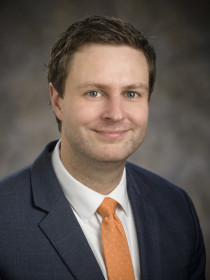
Lee Hannah
Connect with Lee
About Lee
Hannah's research focuses on state politics and the diffusion and construction of public policy and on education policy. He has written extensively on medical marijuana policy and how it has spread and evolved over time. The politics of secondary public education, particularly examining how teachers are influenced by federal and state policies when teaching controversial subjects.
Contributions
Publications
Explores the adoption and implementation of a medical marijuana policy in Ohio. Finds that the threat of an initiative as well as changes in the way the policy is framed plays a key role in incentivizing lawmakers to act.
Explores the diffusion of medical marijuana laws in light of the federal government's position.
Uses a nationally representative survey of 1,500 middle school and high school science teachers to show that training increases science teachers' ability to teach climate change. Discusses how these effects are moderated by teachers' political views and how these realities should inform teacher training when it comes to teaching polarized topics.
Examines how the societal debate over global warming affects science classrooms and finds that, whereas most U.S. science teachers include climate science in their courses, their insufficient grasp of the science may hinder effective teaching. Uses an original survey of 1,500 teachers to show that teachers are mirroring some actors in the societal debate over climate change, reinforcing scientifically unsupported claims in class.